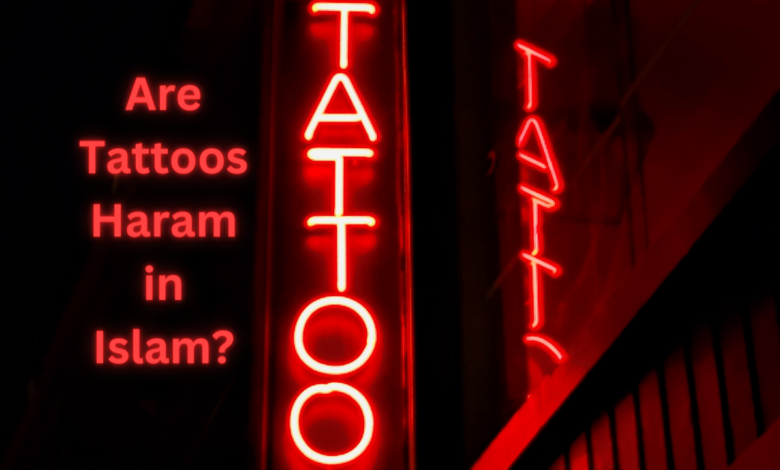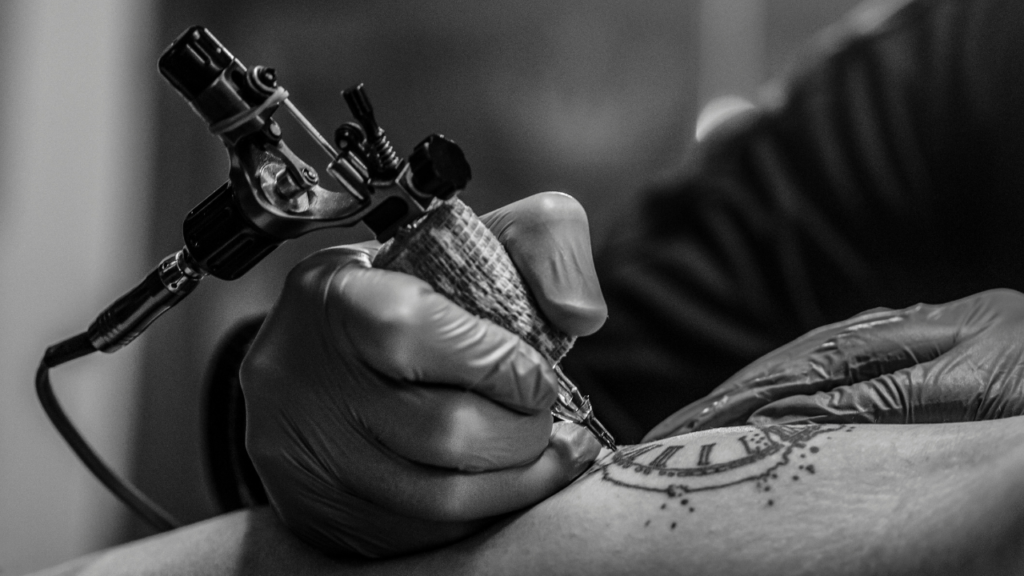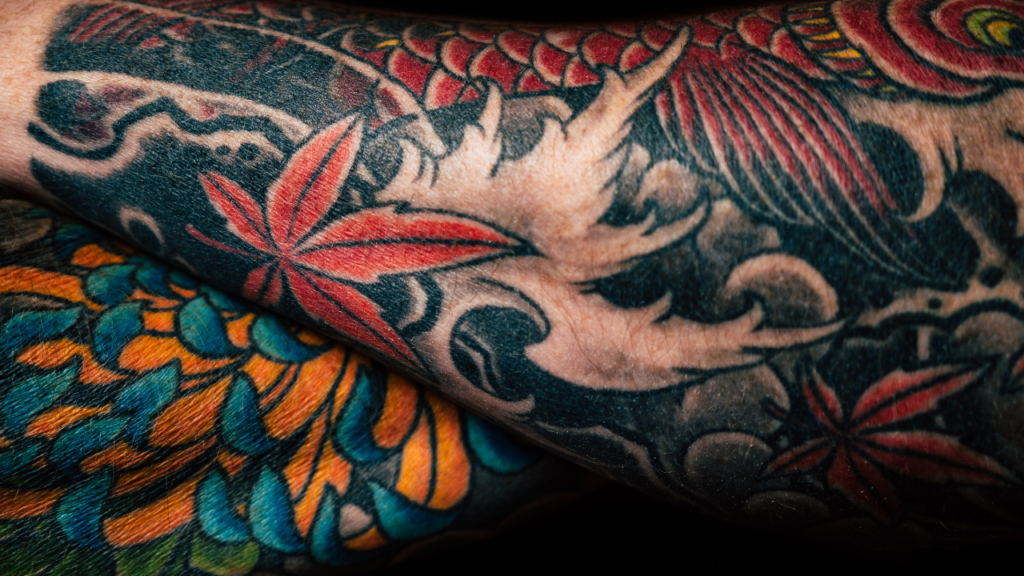Are Tattoos Haram in Islam?
Debating the Permissibility of Tattoos in Islamic Tradition

Are Tattoos Haram in Islam?
No, the Quran does not explicitly mention tattoos. The debate over their permissibility in Islam is based on interpretations of Quranic principles and hadiths.

Introduction
The practice of tattooing has been around for centuries and is prevalent in various cultures across the world. Tattoos are a form of body modification in which ink or pigments are inserted into the skin’s dermis layer to create permanent designs or images. In Islam, the permissibility of tattoos has been a subject of debate and discussion among scholars and practitioners. This article aims to shed light on whether tattoos are considered haram (forbidden) in Islam and the various perspectives surrounding this issue.
The Islamic Perspective on Tattoos
Islam is a religion that provides guidelines and principles for various aspects of life, including personal adornment and body modification. When it comes to tattoos, the Islamic perspective is not entirely straightforward, and opinions differ among scholars and religious authorities.
Also check.
- What is a gin in Islam?
- What is Shirk in Islam
- Who are Kiraman Katibin in Islam?
- What is difference between Sunni and Shia?
- Why Do Muslims Celebrate Eid al-Adha?
The Prohibition Argument:
One perspective asserts that tattoos are haram in Islam based on specific hadiths (sayings and actions of the Prophet Muhammad) and Quranic interpretations. Proponents of this view argue that altering the natural creation of the body is forbidden, and tattoos fall into this category.
The Quran states in Surah Al-Hashr (59:7): “And what Allah restored to His Messenger from the people of the towns – it is for Allah and for the Messenger and for [his] near relatives and the orphans and the [stranded] traveler – so that it will not be a perpetual distribution among the rich from among you. And whatever the Messenger has given you – take; and what he has forbidden you – refrain from. And fear Allah; indeed, Allah is severe in penalty”.
From this verse, some scholars argue that altering one’s body, such as getting a tattoo, goes against the natural creation that Allah has bestowed upon individuals. Furthermore, some hadiths discourage tattooing, as they mention the punishment of those who change the creation of Allah.
The Permissibility Argument:
On the other hand, there are scholars and Muslims who argue that tattoos are not inherently haram. They point to the fact that there is no direct prohibition of tattoos in the Quran, and the hadiths that mention tattooing are subject to interpretation. Some argue that tattoos that do not carry a sinful or offensive message or image may be permissible.
Additionally, proponents of this view highlight that the concept of personal adornment, including wearing jewelry or makeup, is acceptable in Islam. They argue that tattoos can be seen as a form of personal expression and beautification, much like other forms of body decoration.
The Cultural and Regional Variations
It’s essential to recognize that opinions on tattoos in Islam can vary significantly based on cultural and regional factors. In some predominantly Muslim countries, tattoos may be widely accepted or even practiced without raising significant religious concerns, while in others, they may be strongly discouraged or considered haram.
Conclusion
The question of whether tattoos are haram in Islam is a matter of interpretation and debate among scholars and practitioners. While some argue that tattoos are forbidden based on specific hadiths and interpretations of the Quran, others believe that they may be permissible if they do not carry a sinful or offensive message. Cultural and regional factors also play a significant role in shaping attitudes towards tattoos within Muslim communities.
Ultimately, individuals seeking guidance on this matter should consult with knowledgeable religious scholars or authorities and consider their own personal convictions and intentions behind getting a tattoo. It’s important to remember that Islam encourages believers to make choices that align with their faith and conscience while striving to adhere to the principles of modesty, respect, and devotion to Allah.

FAQs
Are tattoos explicitly mentioned as haram in the Quran?
No, the Quran does not explicitly mention tattoos. The debate over their permissibility in Islam is based on interpretations of Quranic principles and hadiths.
What do scholars who consider tattoos haram rely on for their argument?
Scholars who consider tattoos haram often refer to Quranic verses emphasizing the sanctity of the natural human body and hadiths warning against altering Allah’s creation.
Can tattoos ever be considered halal (permissible) in Islam?
Some scholars argue that tattoos may be permissible if they do not carry sinful or offensive messages and are for personal adornment or self-expression, though this perspective is debated.
How do cultural and regional factors influence attitudes towards tattoos in Islam?
Cultural and regional factors can lead to varying opinions on tattoos within Muslim communities. In some places, tattoos may be widely accepted, while in others, they may be strongly discouraged or forbidden.
Is it advisable to consult with religious scholars or authorities before getting a tattoo as a practicing Muslim?
Yes, seeking guidance from knowledgeable religious scholars or authorities is advisable before making a decision about getting a tattoo, as they can provide insights specific to your personal situation and intentions.
What is the punishment for getting a tattoo if it is considered haram in Islam?
There is no specific punishment outlined in Islamic law for getting a tattoo. Punishments, if any, are generally related to more severe violations of Islamic principles.
Can someone with a tattoo still be considered a practicing Muslim?
Having a tattoo does not automatically disqualify someone from being a practicing Muslim. Islam emphasizes repentance and forgiveness, and individuals can seek forgiveness for their past actions.
Are temporary tattoos or henna designs considered halal in Islam?
Temporary tattoos or henna designs are generally considered halal as they do not involve permanently altering the skin. Henna is especially popular for decorative purposes during Islamic celebrations.
Are there any specific guidelines for covering tattoos if someone regrets getting one in Islam?
There are no specific guidelines in Islamic law for covering tattoos, but individuals who regret their tattoos may choose to conceal them as a personal decision.
How can one balance personal expression with Islamic principles when it comes to tattoos?
Balancing personal expression and Islamic principles with tattoos involves considering the content and intention behind the tattoo. Consult with religious scholars, assess your intentions, and ensure the design aligns with Islamic values if you choose to get one.




